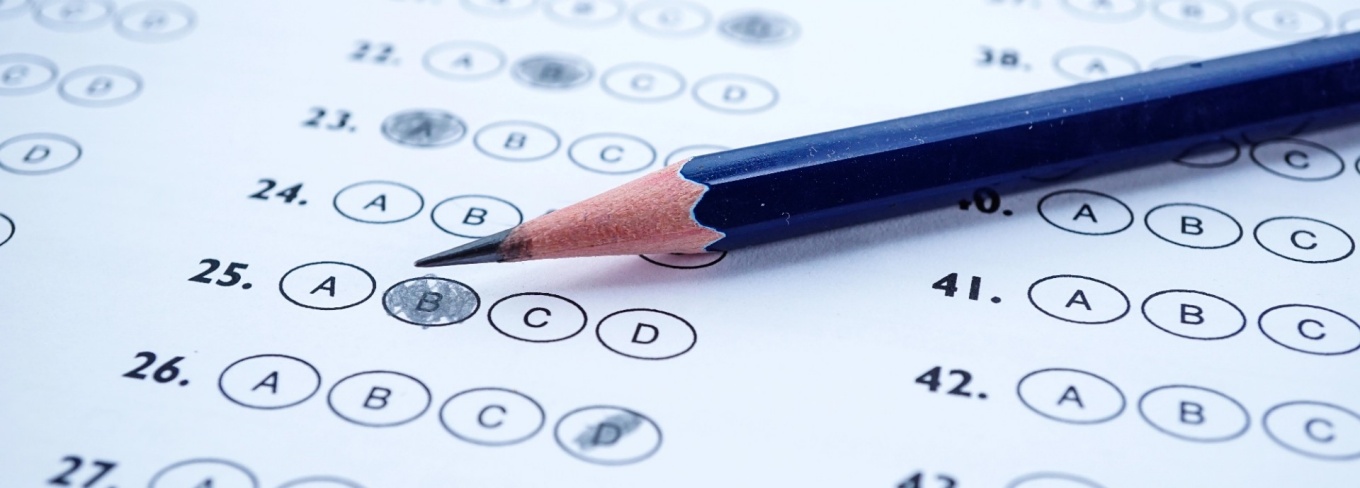
Published September 3, 2024
BY DANIELLE LEGARE
Beyond test scores
GSE alumna, faculty examine the global link between student well-being, academic success
In the global race to improve educational outcomes, much of the focus has traditionally been on test scores, often leading to a narrow view of a school’s success. Yet, these scores alone can’t capture the full picture of educational effectiveness. Amidst the frequent comparisons of international education systems—where the U.S. often ranks in the middle—headlines tend to spotlight perceived shortcomings, leaving a critical question unaddressed: What about the well-being of the students themselves?
University at Buffalo Graduate School of Education alumna Mengchen Su, PhD ’21, and her former doctoral advisor, Jaekyung Lee, PhD, have taken on this very question with a fresh perspective. Their recent study shifts the focus from traditional metrics to a more holistic view of education, examining how the environment and support systems within schools influence not just academic outcomes but also the overall well-being of students across different cultures.
The study provides crucial insights into how different educational systems prioritize the holistic development of students. Su, a research associate in the Center for Applied Research and Educational Improvement at the University of Minnesota Twin Cities, collaborated on this project with Lee, a professor in GSE’s Department of Counseling, School and Educational Psychology.
Published in Educational Research for Policy and Practice, the study investigated the correlation between school environment, student well-being and academic outcomes—instead of solely focusing on test scores—in Eastern and Western nations. The research stems from the analysis of PISA (Programme for International Student Assessment) 2015 data concerning 15-year-olds in China, Finland, South Korea and the U.S.
Su and Lee aimed to assess how effectively these countries are educating the whole child, focusing on both their socio-emotional and academic needs. The study primarily investigated two variables: science literacy and student well-being.
The findings
Their analysis revealed that a disciplined school environment, coupled with strong teacher support, was linked to improved outcomes in China, South Korea and the U.S. However, in Finland, teacher support played a more significant role, reflecting the country’s student-centered educational philosophy and professional learning community.
Finnish students exhibit the highest levels of well-being, followed by students in the U.S. However, the study found that life satisfaction is not significantly correlated with school-level effects in any of the nations.
In the article, Su and Lee emphasized that Finland, often hailed as a model for effective education, appears to be following the right path in terms of holistic student development. However, it remains uncertain whether the Finland model would work well in countries like the U.S. with more heterogeneous student populations and larger school systems, which may need a more balancing act of both disciplined and supportive school climates.
Rethinking educational policy
Lee believes that the study provides a unique Eastern vs. Western international comparative perspective on the issues of whole-child education: “In the past, many nations, including China and the U.S., treated international tests such as PISA and Trends in International Mathematics and Science Study as international academic achievement contests, with focus on the rankings of nations based on standardized reading, math and science achievement test scores,” he said. “This bias has often ignored or undermined other important goals of education, such as improving students’ socioemotional skills and wellness.”
“This study helps fill the knowledge gap and rethink education policy with a more balanced and culturally responsive look at the profiles of whole-child development,” Lee continued.
A graduate of GSE’s doctoral program in educational psychology and quantitative methods, Su feels equally as passionate about this study.
“This research is an extension of my dissertation study, which holds great personal significance. Over the years, it has deepened my commitment to culturally responsive educational methodologies and my dedication to comprehensive whole-child education on a global scale," she stated. “It profoundly resonates with my conviction that children should flourish and be educated as well-rounded individuals. This conviction surpasses a limited focus on academic test scores, which cannot wholly capture a child’s full potential and growth.”
Alumni-faculty collaboration
The collaborative nature of this study blended scholarly research with an academic connection: Lee once served as Su’s advisor.
“Collaborating with Dr. Lee on this project was a deeply enlightening and enriching experience. His expertise in whole-child education and educational policy research played a pivotal role in shaping the objectives of our cross-cultural study," Su said. “Working with Dr. Lee was a privilege that expanded beyond the usual scope of typical projects. This collaboration has significantly influenced my career aspirations and research direction, reinforcing my commitment to contribute to policy development that is informed by empirical research, aimed at promoting a more holistic and culturally responsive approach to education.”
“Our study offers a balanced and cross-cultural analysis of whole-child development, aiming to contribute to the ongoing reassessment of educational policies in the post-pandemic era, which is marked by significant social and emotional challenges in education globally," said Su. "We view whole-child education as a pathway to lifelong empowerment, preparing students to effectively handle both current challenges and future opportunities.”
Tuesday News Briefs feature the stories of the Graduate School of Education faculty, students and alumni who are engaged in their communities and making an impact through their hard work, dedication and research initiatives. If you have a story to share, please email us with the details for consideration as a future news feature.